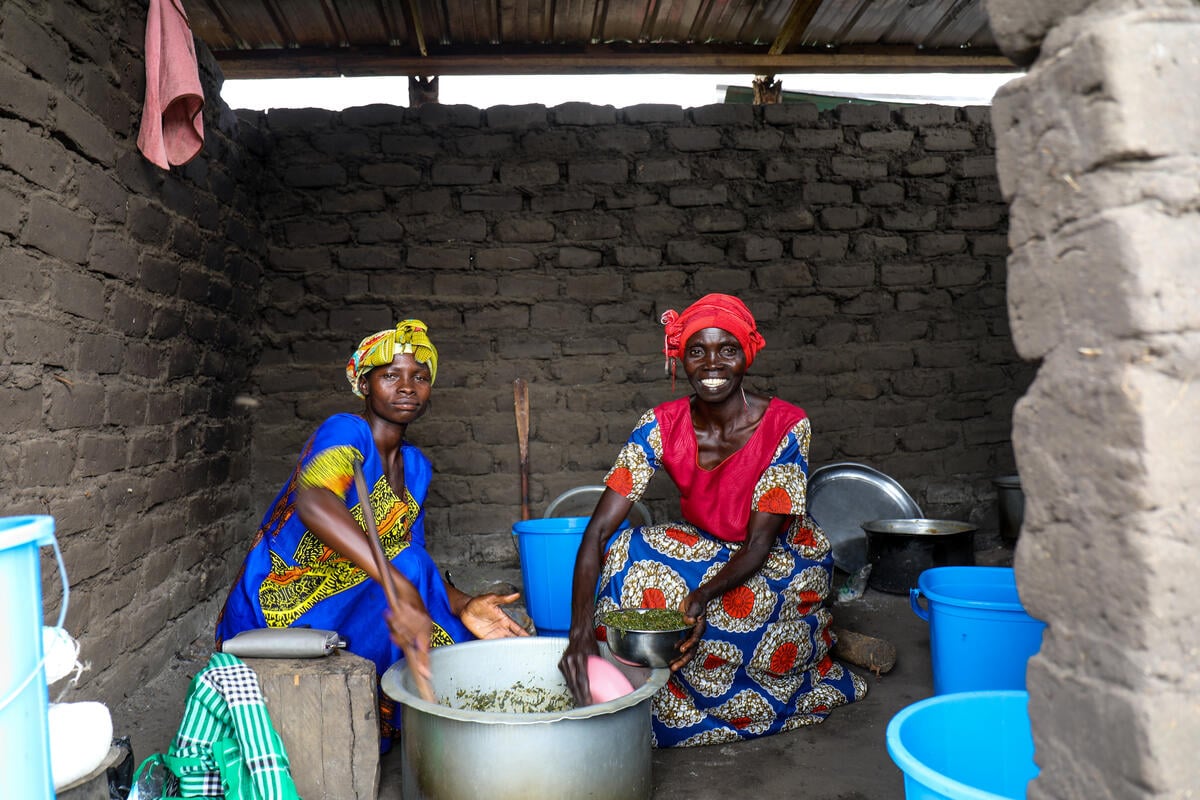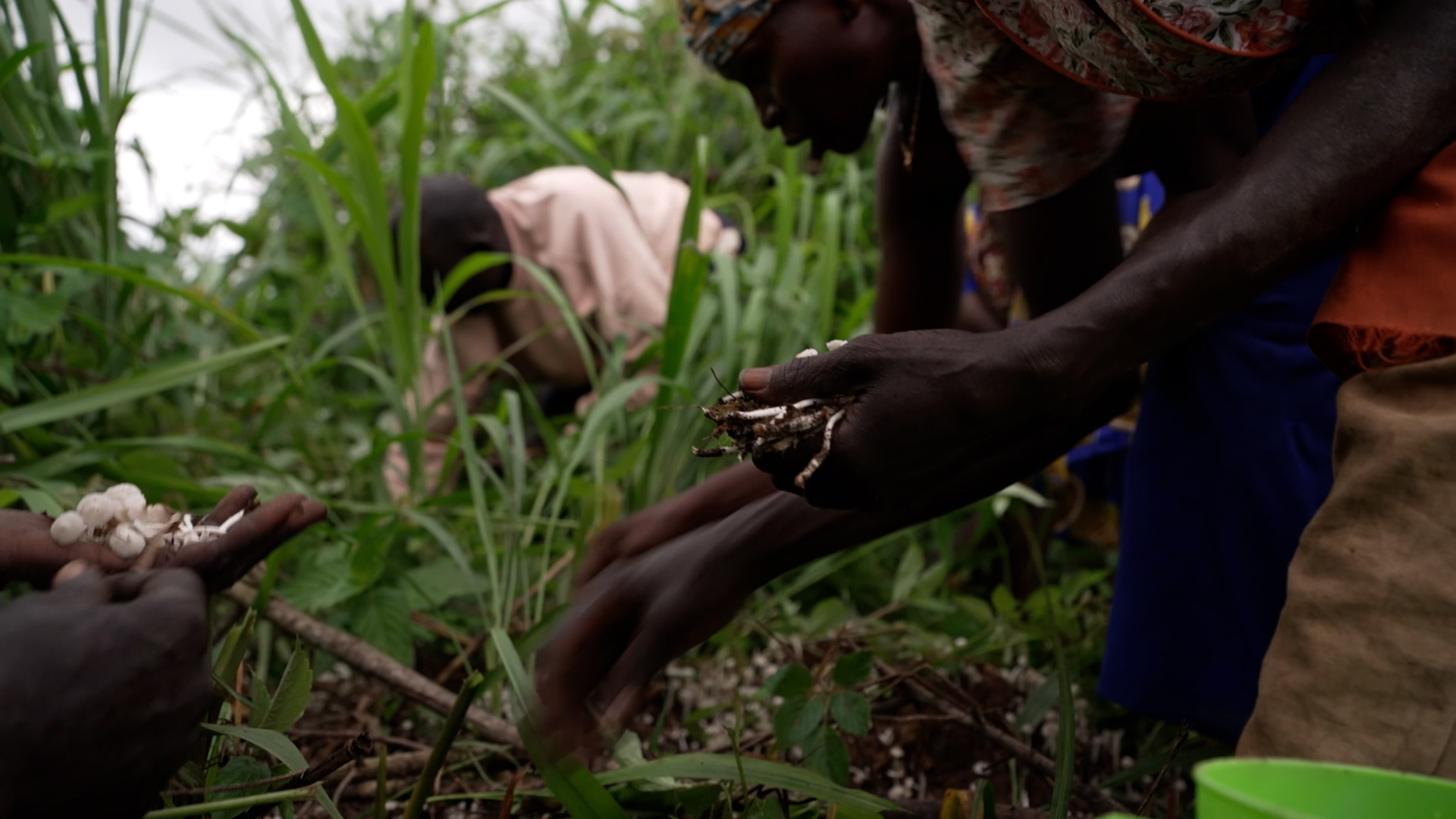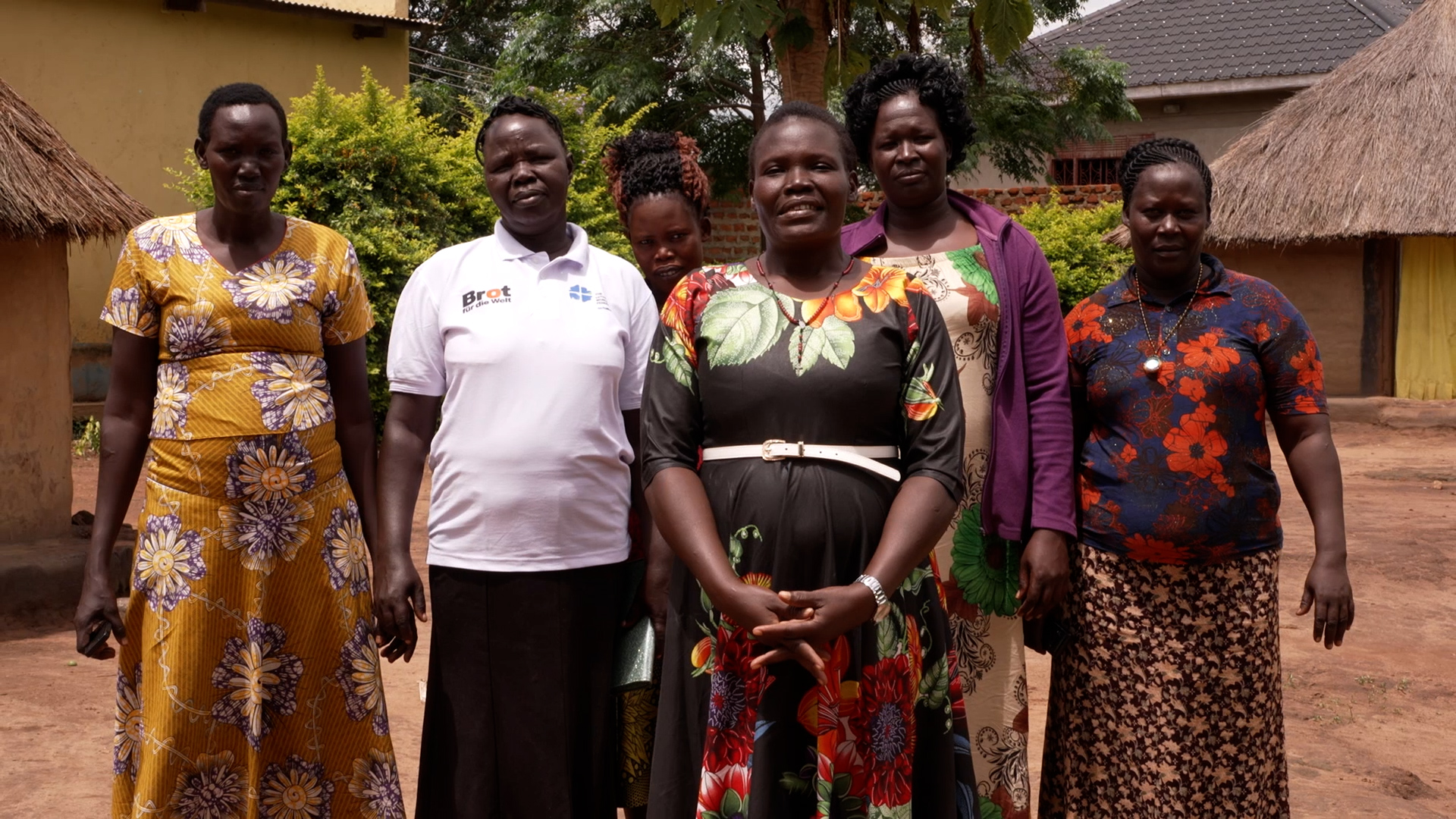UNHCR warns of overcrowding, funding shortages amid sharply worsening South Sudan displacement
UNHCR warns of overcrowding, funding shortages amid sharply worsening South Sudan displacement
With refugees fleeing South Sudan in their thousands, surrounding countries are straining under the weight of large numbers of displaced people and critically underfunded operations. Already there are some 930,000 refugees in the region, and more are arriving daily. UNHCR, the UN Refugee Agency, is extremely worried that even as the refugee population grows, funds to meet basic needs are becoming exhausted.
The outbreak of violence in Juba in July appears to have tipped the scales against an imminent political solution to the South Sudan conflict. There are numerous reports of sporadic armed clashes, human rights violations including sexual and gender-based violence by armed groups, and worsening food insecurity – inflicting immense suffering. General security conditions are unpredictable with renewed clashes reported in Central and Western Equatoria, Western Bahr el Ghazal, Upper Nile and parts of Unity.
Further compounding the situation is a deteriorating economy, which has seen inflation rise to an unprecedented 600 per cent over the past year. This is the situation as the anniversary of the August 2015 peace agreement approaches. Some 200,000 individuals have been fleeing new violence in previously stable areas such as Greater Equatoria and Greater Bahr-el-Ghazal.
Uganda and Sudan have received an estimated 110,000 and 100,000 new arrivals respectively in 2016, together accounting for more than 90 per cent of the new arrivals in the region this year. Most of those fleeing to Sudan arrived in the first six months of the year, driven by fighting in previously stable areas in Western Bahr al Ghazal state, as well as the worsening food security. In addition to the refugee numbers, there are 1.61 million people who are displaced within South Sudan.
In the case of Uganda, three quarters of the refugee arrivals have been since the outbreak of conflict in July, when the arrival rate peaked at more than 8,000 in one day. Accounts from new arrivals — 90 per cent of whom are women and children, mostly from Juba and other parts of Central Equatoria — point to a breakdown in law and order in their home areas. People cite rampant violence including killings and clashes between government forces and armed groups. They also report that armed groups are robbing civilians and extorting money from them, preventing those who are unable to pay from leaving, and sexually assaulting women. Armed groups are also reportedly abducting children aged 12 and above from schools and threatening people. Disappearances are said to also be on the rise.
The Government of Uganda has opened a new settlement in the north-west of the country at Yumbe. This has capacity for more than 100,000 individuals. Funds are urgently needed to speed the relocation of more than 45,000 refugees out of overstretched and severely congested reception and transit centres. With so many people living in such close proximity, the potential for disease outbreak is high. UNHCR teams are monitoring the situation closely, but need further resources to respond effectively. With some reception sites accommodating more than five times their capacity, protection interventions, particularly prevention and response to sexual and gender-based violence including psychosocial services, are critical. High numbers of refugees are creating a burden on local health and education services. The development of the Maaji III settlement, which was opened earlier this year, has been put on hold leaving the new settlement without key basic infrastructure and services (medical services are being provided in tents). In Adjumani (some 20km from the South Sudan border), clean water is being trucked, which itself is expensive, until resources become available to drill more boreholes and extend water systems to reach new settlement areas. At the same time, the development of newly opened settlement areas in Adjumani and Yumbe districts will require significant additional investment. Torrential rains are hampering relief efforts, slowing relocation efforts and requiring immediate road repairs. And there are fears that in the event of outbreak of disease, existing capacities and resources will be inadequate to respond effectively.
In the face of desperate needs for the population of South Sudanese refugees now standing at 930,000, UNHCR is facing critical funding shortages. With US$ 122 million received, representing 20 per cent of the $608.8 million needed by UNHCR for refugees in South Sudan and the six countries of asylum, many activities have been suspended in favour of providing critical life-saving support to new arrivals. Worst affected are remote regions in Uganda, Sudan, the Democratic Republic of Congo and the Central African Republic where UNHCR had no previous presence. Ethiopia and Sudan, which have experienced mass influxes, are also badly affected.
UNHCR continues to commend the generosity of countries that are keeping their borders open and providing South Sudanese refugees with land for settlement. In particular, we applaud Uganda’s generous refugee law and policy regime, which among other benefits grants refugees freedom of movement, the right to seek employment and provides them with plots of land on which to build new homes and to grow agricultural crops.
UNHCR is appealing to the international community to support countries of asylum to protect and assist South Sudanese refugees. Continuing funding shortages will further disadvantage women, children and men who need urgent sustained help to overcome the trauma of forced displacement and get on the path to recovery, self-reliance and human dignity. The inability to provide food, shelter, basic services, psychosocial assistance, education and livelihood opportunities increases and prolongs vulnerabilities.
For more information on this topic, please contact:
- In Nairobi, Teresa Ongaro ([email protected], +254 735 337 608)
- In Nairobi, Duke Mwancha ([email protected], +254 722 207 863)
- In Juba, Rocco Nuri ([email protected], +211 927 725 535)
- In Kampala, Charlie Yaxley ([email protected], +256 (0) 776 720 045)
- In Geneva, Nora Sturm ([email protected], +41 79 200 76 18)









